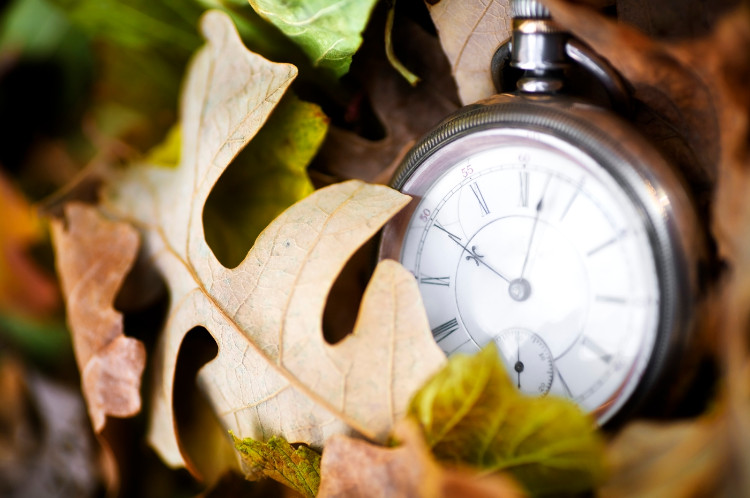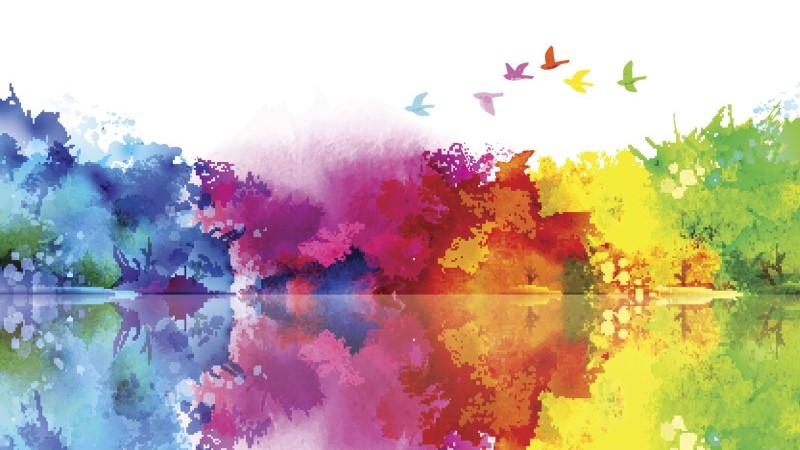This is a must-see! Proven advice: how to cope with autumn depression?

The arrival of autumn brings with it many changes affecting the human body. The end of summer, the transition to winter, cold weather with lower temperatures, the change from summer to winter time, shorter days, longer nights, less daylight. Some people feel these changes more than others. What all affects us and how to cope with fatigue and depressed mood?
Article content
It is what is popularly known as 'autumnal depression'. It is related to the body's adaptation to weather fluctuations, which are most varied in autumn. It can also aggravate pre-existing depression.
Depression affects many more people than one might think. Its symptoms multiply in autumn and suicide rates also rise.
Why is this so?
What does autumn bring with it?
Autumn is one of the four seasons. It represents the transition from the summer months to the winter months. Astronomically, it begins with the autumnal equinox.
It ends with the winter solstice, which occurs around December 21 in the northern hemisphere and around June 21 in the southern hemisphere. Because the Gregorian calendar may not coincide with the Earth's position in orbit, the dates of the equinox and solstice may differ by a day.
Autumn is never experienced by people living at the equator.
Autumn weather
After a sun-drenched summer, it gradually cools down and a brisk autumn arrives. Cooler temperatures, more precipitation, changes in air pressure and humidity causing frequent fog, changes in fronts and changes in weather conditions, along with shorter days and longer nights are typical of autumn.
Compared to the summer months, autumn appears to be a sadder season.
The impact of changes on the human body
Since ancient times, man has had to adapt to different conditions. In the past, it was mainly for the sake of mere survival. However, throughout the evolution of mankind, we still have to adapt to changes that have an incredibly fast pace.
This is an evolutionary adaptation process. In addition, we adapt to various changes in work or life during our lifetime. Less significant but constant changes also concern the weather, which has a demonstrable effect on human health and psyche.
It affects more sensitive people (meteosensitive).

Autumn depression - myths and facts
The fact remains that changes in the weather have a certain effect on the human organism. Autumn and winter periods affect more precisely the lack of light, the variety of changes in weather conditions and the lack of vitamins during these periods.
It is a myth that autumn necessarily means depression. In a high number of people, autosuggestion causes depressive symptoms more than the above.
Lack of light
Sunlight, specifically UV radiation, causes the synthesis of vitamin D and subsequently the production of serotonin - the happiness hormone.
Shorter days, rainy weather result in less light and sunlight. Thus, less vitamin D is produced, leading to low mood and depression.
Inversion
An inversion is a meteorological phenomenon that affects air temperature. More specifically, an inversion means higher air temperature at high altitudes and lower air temperature at low altitudes. Air at high altitudes has a lower density than air at lower altitudes.
Temperature inversions mainly burden patients with cardiovascular diseases and respiratory problems.
They are a breeding ground for micro-organisms. That is why the number of infections increases in autumn. Combined with the reduced immunity due to vitamin deficiency, it is a period that manifests itself in an increased number of illnesses.
Changes in humidity
When humidity increases, muscle stiffness worsens and this affects patients with muscle, tendon and spinal conditions the most. The stiffness results in pain or tingling in a particular part of the body.
Increased humidity causes or worsens swelling, adversely affecting asthmatics, cardiac patients, and patients with venous disease.
Psychologically, one can observe an increase in stress, fatigue, malaise, inefficiency, insomnia and increased depression.
Changes in air pressure
Changes in barometric pressure (the pressure exerted by the air in the environment) clearly affect our health. The mechanism of their effect is not fully understood, but the connection is clear. Changes in pressure primarily affect physical health.
Patients with chronic painful diseases such as rheumatism, inflammatory diseases of the muscles and joints, oncological pain, back pain and migraines are especially aware of this.
Autumn brings with it changes in pressure, aggravating the aforementioned illnesses. Most of the time, these are painful conditions that subsequently affect a person's psychological state of mind. Any pain causes a bad mood, depression.
The power of suggestion and sensitive individuals
Autumn is generally considered a period of depression and higher suicide rates.
This untrue information is not new and has been circulating through the information streams for many years, so most people are familiar with it. Just the fact that autumn is coming and with it an escalating depression is negative information that negatively affects a person's mindset. In most cases, this initial negativity can affect a person's overall mood.

When we suggest to ourselves that this is the case, it will be the case. The power of thought and the power of suggestion in a person is incredibly great. Therefore, sometimes we are somewhat to blame for our own sadness.
Autumn brings with it changes to which meteosensitive individuals in particular react. But they are not nearly so severe as to cause depression. Other factors are involved in the onset of depression, and usually these are the triggers. Autumn weather can exacerbate it, but never cause it.
Suggestion
Suggestion, from the Latin suggestio, is a stimulus leading to an impulse (reaction).
By suggestion, we usually mean a statement (for example, that autumn is the season of depression) that is formulated and put into people's minds to produce the originally intended effect or outcome. A phenomenon suggested by someone takes place (people, will be depressed in autumn, which is what the initial information leads them to do).
Division of suggestion:
- Suggestion can be from other people trying to manipulate the person or, theoretically, the "victim" by it. This phenomenon is often observed in the world of advertising.
A company selling a product will manipulate its potential clients so much by advertising and positive information (not always true) about the product that it gets them to buy it. People with a tendency to adopt the ideas of others are more at risk. This phenomenon is called suggestibility.
It mainly affects children or people with low self-confidence and intelligence. - Autosuggestion means that a person suggests either a negative or a positive thought to himself.
Based on the initial suggestion, the next course of action takes place. The conclusion is what the person initially expected. Autosuggestion is dangerous especially for negative people who constantly expect a negative outcome. They claim to be perpetual losers and that they are not successful. But unless they find fault in themselves and start thinking positively, they will remain so.
Meteosensitivity - sensitivity to weather changes
Meteosensitivity is not a made-up term. This is especially true for those who know days before a weather change that it will happen without watching the forecast. It is a physical and psychological hypersensitivity or reaction of the body to weather changes.
Meteorological changes and the effects of the atmospheric environment on humans are dealt with in the scientific field called bioclimatology.
For example, some individuals experience headaches or previously injured parts of the body (e.g., broken limbs, post-surgical scars, phantom pain - pain from an amputated body part) when it is supposed to rain or be cloudy. Rainy weather has also been associated with an increase in migraine headaches, an increased number of epileptic seizures, and psychiatric disorders.
Aggression increases.
The moon and its phases also have a great influence on a person.
The full moon is most often referred to in this context. As such, it also affects water (tides). Since the human body is made up mostly of water, its effects are also felt on us. Most of the time, these are changes in mood and behaviour, people are more nervous, more aggressive, crime and violent crimes increase, and psychiatric disorders worsen.
How to deal with depression in autumn?
1. Positive thinking
Positive thinking is the foundation of happiness. Basically, it is a positive outlook on life and the world around us.
Just as the influence of suggestion works, for example, in the world of advertising, we can use suggestion to help us to feel good, to think positively and to treat not only "autumn depression". It can also be considered as one of the methods in the treatment of depression as a disease and in the treatment of other psychiatric diseases.
Of course, a single thought and suggestion will not make the problem non-existent. It will hardly erase it from our minds and thoughts, and thus from our lives.
Positive thinking means that we organize the thoughts in our heads into a meaningful whole, prioritize them, and find possible solutions.
Some people find solitude and time to sort out their thoughts helpful, others go to nature for some peace and quiet, others listen to soothing music to think and relax.
In some cases, the individual is not enough to do this alone or is not strong enough to re-evaluate thoughts and give the positive ones a chance over the negative ones that bubble to the surface.
In such cases, family or friends can be helpful and supportive. Sometimes, however, those who should be standing by us do exactly the opposite. This is when we should turn to a professional (points 2, 3).
2. Coaching
Coaching is the process of finding individual solutions for an individual, advising and developing him/her in a specific area and getting feedback from the client. The person is not alone in this, he/she is helped by his/her coach (trainer).
A coach is not a psychiatrist or a psychologist, but a person who can be considered an equal partner or confidant.
If you have a problem in a certain area that you cannot handle on your own and that is growing, it is very advisable to contact a coach. The coach encourages the client to find his own solution by means of a creative process. He does not impose anything on him, does not influence him with his own opinions. He directs him towards personal growth so that he can find the path he needs to find on his own.
3. Psychotherapy and psychohygiene
Psychotherapy is the treatment of a disturbed organism with the help of psychological means. It can be a conversation, learning or activities.
By psychohygiene we mean the path to mental health.
The two concepts are closely related. They are dealt with by the discipline of psychology and partly by psychiatry. The professional obtains important anamnestic information from the patient during the interview, through which he is able to identify the main problem, the causal links and then can help us to solve it.
The interview can be between the patient and the psychologist. Group sessions are also very popular.
The group is made up of the psychologist who leads the session and several clients. They have different problems but one goal. The group discusses, talks out loud about their problems and supports each other, helping each other with conversation, experience and advice.
4. Activities of interest
Each one of us has some interests and activities that he likes to do or used to do before depression took hold. Even the one who says that he does not enjoy anything, or is minimally convinced of it, knows himself that this is not the case. He knows that there is something that makes him happy.
It may be sport, cooking, dancing, music, reading a book, going to the cinema or the theatre, drawing, playing a musical instrument or going for a walk.

Sport and physical activity are very beneficial for health. And not only physical, when we burn calories and blood circulation. Sport helps for overall mental balance and a good state of mind.
Read also the articles:
How to get rid of stress in summer
How to make a training plan
It is very important that we at least admit to ourselves that there is something that fulfills us. The sooner we figure it out or admit it to ourselves, the sooner we will have hope of improving our condition - even if only for a little while.
Some people can think with a more open mind when doing their favorite activity, or at least suppress negative thoughts for a time.
5. Relaxation
Relaxation means the state or process of releasing mental and physical tension. This term encompasses a wide range of possibilities. We even know many subcategories or industries. They have one goal, namely relaxation.
- Massage
- wellness/spa
- relaxation exercises (e.g. yoga)
- dance (biodynamic massage)
- breathing exercises
- meditation (mantra)
- music therapy
- aromatherapy - essential oils (e.g. lavender)
6. Phototherapy and colour therapy
Phototherapy is a light therapy and is very popular. It is particularly important in autumn when the days are shorter, the weather is cold and the sunlight is less.
Its positive effects have been proven for the proper functioning of the body. Polarised light is used for this purpose (it has a degree of polarisation of more than 99%). This is due to a group of scientists who have been able to separate the different wavelengths of the spectrum, thus creating this light with therapeutic effects.
Polarised light can be found, for example, in biostimulation lamps, which are mainly used to regenerate wounds, acne, eczema and muscle pain.
The essence of the treatment is the ability of the light to activate the body's ability to heal itself, increasing immunity. The light increases the production of endorphins, including serotonin (the so-called happiness hormone), which decreases in autumn.
Color therapy is a lesser-known treatment with colors.

It is scientifically proven that colours can activate the central nervous system and influence the chemical balance in the body through hormones. Colour therapy is also used as a form of prevention and as a complementary treatment for many psychological problems and depressive conditions.
The action of the colour spectrum is mostly used in the form of lamps.
Some people switch on the lamps before going to bed because, among other things, they have an effect on restful sleep. Mandalas are also useful in colour therapy. Mandalas are circular colour patterns that the patient usually draws himself, choosing the colours. They are energetic images, created with love, painted with the heart, guided by intuition.
Colour therapy also involves dressing in more colourful clothes to lift the mood. Replace grey-black shades with brighter colours, or pastels that are calming.
7. Healthy eating
Diet affects our whole body. If the diet is healthy and balanced, it supports the immune system and the overall processes in the body. First of all, we should avoid unhealthy and fatty foods along with sweetened drinks (insomnia), alcohol (depression), but we should also say goodbye to other bad habits (cigarettes, coffee, drugs).
A balanced diet means eating smaller amounts and more often (5 times a day is recommended). Vegetables and fruit should be preferred. Fish (selenium - immunity, omega-3 fatty acids - promote proper brain function and affect mental well-being), lean meat, oatmeal (aids digestion) are also suitable
Attention!
Sweets do not help with depression. Many people consume excessive amounts of chocolate when they are in a bad mood, but this is not right. There may be relief at the time, but only momentary.
Increased sugar intake ⇒ increased energy intake ⇒ insomnia ⇒ fatigue ⇒ physical and mental exhaustion ⇒ depression.
Read also the article on eating right.
8. Vitamins
During the autumn days, don't forget about vitamins. Weather changes also bring with them the need to adapt, and frequent weather fluctuations cause reduced immunity and increased sickness. However, some vitamins have a direct effect on the psychological state of mind and a lack of them leads to nervousness, moodiness, depression and others.
Vitamin C (or even L-ascorbic acid) is essential for the proper functioning of the entire body.
It positively influences the running of vital functions, contributes to overall immunity, and its deficiency can be seen in the manifestation of restless behavior in addition to increased morbidity.
It is therefore important in 'autumn depression' for two reasons, namely its effect on physical problems, especially in the case of reduced immunity, but also for the proper functioning of the psyche. It is found in citrus fruits, kiwi, pineapple, blueberries, cabbage, spinach, cauliflower and many other fruits and vegetables.
Lemon does not contain the highest amount of vitamin C as people think. Strawberries have the highest amount of vitamin C.
Vitamin B, a water-soluble vitamin.
There are several subgroups (B1 to B12) of this vitamin. All the subgroups together in one tablet are called the B-complex.
The individual B vitamins complement each other and together enhance their effect. In depression, sometimes it is only a deficiency of vitamin B1 that causes mood disorders, anxiety and depressive states, irritability discomfort and restlessness.
Vitamin B6, on the other hand, maintains a good mood especially in women during difficult periods such as menstruation and menopause. Its intake is important especially during winter periods.
Vitamin D is a fat-soluble vitamin. It is produced endogenously in the human body. Its synthesis is caused by sunlight (UV radiation) mainly during the summer months.
During the cold seasons (this includes autumn), its production is lower.
This deficiency also causes a lower production of serotonin - the hormone of happiness. Therefore, it is very important during cold days to supplement it in the form of tablets. In the diet it is found in fish (salmon, mackerel, herring, tuna, sardines), eggs, meat, liver, dairy products. A high proportion of vitamin D is also found in cocoa butter.
Vitamin D is also essential for the proper functioning of the brain. It has a preventive effect in the treatment of neurological and psychiatric diseases. It is even used as an adjunctive method in the treatment of mood disorders. Among other things, it has a positive effect on the immune system, which is stressed during weather changes.
Vitamin D , spring, summer and sun. Our health, strong bones or strong immunity
9. Herbal therapy
Several herbs are among the natural antidepressants.
These include:
- St. John's wort - this plant is the number one antidepressant. It reduces anxiety, tension, calms and has a positive effect on restful sleep. It is the number one remedy for autumn depression.
- Lemon balm - soothes mental tension, affects restful sleep
- Ginseng - relieves fear, stress, fatigue and calms
- bay leaf - helps with depression and mental tension
- red spleenwort
- heartwort
What should we not forget in autumn?
With autumn depression, the first thing we should know is whether we had depressive symptoms before it started, or if we have been diagnosed with depression.
We should re-evaluate whether it is really depression per se (diagnosed by a psychiatrist) or just a bad mood from the cold weather, vitamin deficiency or other factors directly related to the season (meteosensitive people, suggestibility).
If the sad mood only appears during autumn, it is very easy to fight it.
Depression, the symptoms of which are intense and persist throughout the year, belongs in the hands of a psychiatrist in collaboration with a psychologist.
Related










